Psychological Tips Posts on Crowch
Domestic violence is a wound that is often invisible. It hides behind closed doors, behind forced smiles, and behind silence. Survivors may continue going to work, seeing friends, living daily life, but inside they live with constant fear. October is the month when we must break that silence, bring the issue to light, and offer support.
Domestic violence knows no boundaries. It is not limited by country, age, education, or income. It can affect anyone. That is why we must recognize: violence is not a “private matter,” but a human rights and justice issue.
✨ Why do we need this month?
- To break the myths. Abuse is not always physical. Control, threats, financial manipulation, or emotional humiliation are also forms of violence.
- To support survivors. Everyone deserves to know they are not alone and that help is available.
- To change culture. We must teach children and young people to build relationships based on respect, not fear.
- To give hope. Stories of those who escaped and rebuilt their lives serve as inspiration and strength for others.
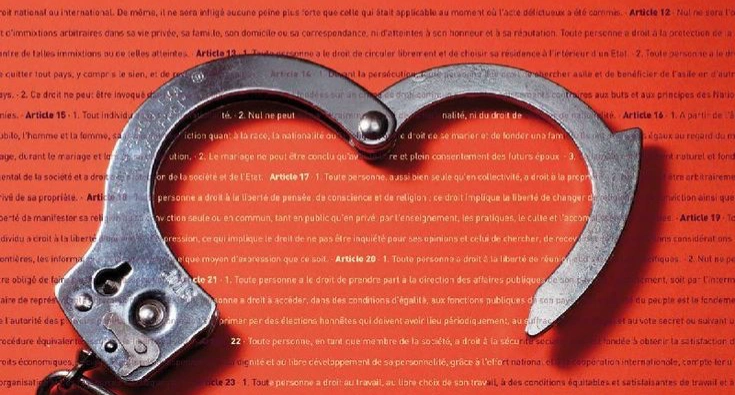
Domestic Violence Awareness Month is a reminder that we have a voice — and we must use it. A voice that says “no to violence.” A voice that supports those too afraid to speak. A voice that unites people for change.
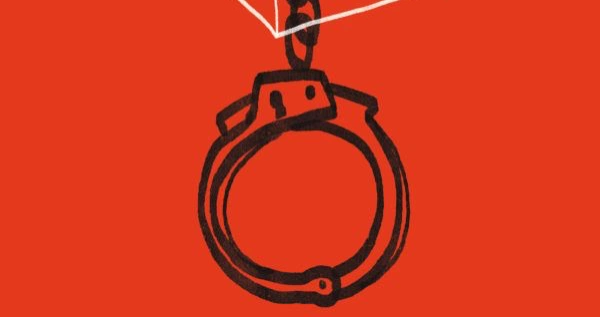
Each of us can take action: share hotline numbers, support awareness campaigns online, donate to organizations, or simply listen to someone who needs to be heard. Small steps create big change.
October in purple is a symbol of hope and solidarity. It is a chance to show that violence will not remain in the shadows. It is an opportunity to say to millions of people: “You are not alone. The world hears you. The world is ready to help.”
October is a month when millions of people unite to say: domestic violence cannot remain in silence. It destroys families, breaks lives, and leaves deep emotional and physical scars. But through awareness and support, we can break this cycle.
Domestic violence takes many forms. It can be physical harm and threats, but also shouting, humiliation, financial control, or isolating someone from friends and family. All of these are forms of abuse that leave scars not only on the body but also on the soul. And often the most frightening part is the silence around it. Survivors are afraid to speak, and those nearby sometimes choose to look away.
Why do we need this month?
- To speak out. Silence only makes the problem stronger. When we name things for what they are, we open the door to change.
- To help survivors. Hotlines, shelters, and crisis centers are real lifelines for those trying to start over.
- To educate the next generation. Young people must learn that healthy relationships are built on respect, not fear and control.
- To stand together. The purple ribbon is a sign of solidarity, a reminder that together we are stronger than violence.

Domestic Violence Awareness Month is not only about pain, but also about hope. It is about the stories of those who found the courage to leave, to rebuild, and to prove that life without fear is possible. It is about doctors, counselors, lawyers, and volunteers who dedicate themselves to helping survivors. It is about friends and families who refuse to turn away.
We can all be part of the solution. Share information, support a charity, listen to someone who is reaching out. Even a single kind word can be the first step toward freedom.
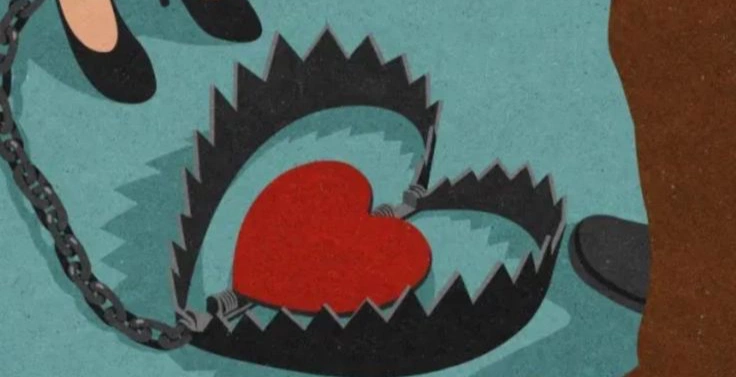
October in purple is a symbol of struggle and hope. It is our collective voice against violence. A voice that must be loud enough for survivors to hear, and for those who can help to take action.
Sometimes, anti-stress isn’t about “fighting stress,” doing breathing exercises, or using willpower. Sometimes, anti-stress simply means stopping the act of coping.Stopping the performance when everything inside is falling apart.Stopping the pushing when there’s nothing left to give.Stopping the inner voice that keeps saying, “Just a little more, hold on.”
Modern people are trained to cope. It’s a habit: keep the pace, stay functional, don’t show weakness. We get used to overload and start calling it “normal.”Tired? “Everyone is.”Don’t want to get out of bed? “Pull yourself together.”No joy? “At least things are under control.”At some point, the body stops believing we’re listening. It sends signals: insomnia, apathy, tears, irritability, exhaustion that rest doesn’t fix.That’s not weakness. That’s the body saying: “Enough.”

Anti-stress isn’t about “productive rest.” It’s not about “taking a massage” just to become efficient again. It’s not distraction.It’s about coming back to yourself.Slowing down enough to ask the quiet questions:
– Where am I hurting but staying silent?– What do I really feel when I’m alone?– What am I avoiding by staying busy?– What do I need that I won’t allow myself?
Anti-stress is about honesty. Not public honesty — internal.It’s looking at yourself without filters.And not trying to fix — just being willing to see.
Sometimes what we need first is not a solution, but a recognition.Saying: Yes, I’m tired. Yes, it’s hard. Yes, I’m not okay.And that doesn’t make you weak — it makes you real.And from that point, the return begins.Not to performance.But to your actual self.

What helps?
– An honest conversation — even if it’s just with yourself– Turning off your phone for the evening– Allowing rest without needing to “earn it”– Warm light, soft music, a scent that feels like “home”– Simple body signals: a slow exhale, a gentle stretch, one kind touch– A soft “no” where your body is already saying “enough”
Anti-stress isn’t a task — it’s a state.It doesn’t mean “everything is fine.”It means: I’ve stopped fighting myself.
And often, in that very moment — when you stop demanding strength —strength returns.Quietly.Gently.Not as a push. But as breath.As stillness.As the simple truth: I exist.And that is enough.
Many of us try to keep everything under control. Work, schedules, finances, relationships, health, emotions — everything must be managed, otherwise anxiety creeps in. We believe that if we stay organized, productive, alert enough, we can avoid chaos. But the truth is, control doesn’t protect us from stress — it often creates it.
The need to control everything comes from fear. Fear of failure, uncertainty, rejection, criticism, or vulnerability. So we try to control not just ourselves, but people around us. We build routines, plans, and to-do lists, trying to make every part of life predictable. But deep down, we know: life doesn’t fit into spreadsheets.
And so you push yourself harder, stay strong, keep it all together — until one day, you simply burn out. Because no system — not even the human body — can stay in tension forever. The belief “If I let go, everything will fall apart” becomes your internal script. Behind it — anxiety, insomnia, irritability, and guilt for even taking a break.

The answer isn’t to give up on everything — it’s to allow yourself to be human. To admit that you can’t and shouldn’t control it all. That uncertainty is a natural part of life. That sometimes letting go is wiser than holding on. That you also deserve to pause, to not know, to rest without guilt.
When we stop trying to control everything, we make room. Room for real feelings. For breathing. For life — not perfectly planned, but real. Sometimes, the best way to handle stress is not to get stronger, but to stop fighting. To just be. To breathe. To listen. To take the next step not out of fear — but out of trust in yourself.

Letting go of control isn’t weakness. It’s maturity. It’s knowing that peace matters more than perfection. That you don’t have to hold it all together. That being real is better than being flawless. And in that — lies your true strength.
Sometimes stress doesn’t feel like an explosion. It feels like background noise that never stops. On the surface, you’re doing fine — tasks get done, meetings happen, life goes on — but inside, you’re tense. Like you’re constantly clenching your fists, not with your hands, but with your nervous system. It’s hard to explain, but many know the feeling: anxiety without a reason, tiredness that sleep doesn’t fix, irritation over nothing, the deep urge to disconnect from everything — even for just an hour.
We often see stress as an enemy to fight off. But in truth, stress is a natural response to overload. It’s not weakness — it’s a signal: “This is too much. I’m not recovering fast enough.” If we ignore that signal, the body starts to “scream” — through pain, insomnia, apathy, or burnout.
The goal is not to be made of steel. The goal is to notice your limits. Where is it becoming too much? Where are you acting from tension, not from interest? Where are you saying “yes” when every part of you wants to say “no”? The ability to hear yourself in time isn’t a luxury — it’s a skill that protects your energy, health, and emotional balance.

Sometimes all it takes is something small: stepping outside for a phone-free walk. Setting a 10-minute timer for silence. Writing down everything that’s buzzing in your head. Saying to someone close: “I need space — I’m overloaded.” It won’t solve everything, but it’s a pause that gives your body a chance to breathe.
And above all, in stressful times, be gentle with yourself. Stop demanding productivity when you’re running on empty. Stop comparing yourself to others who seem to have it “together.” Stop expecting yourself to be strong every second. Because strength isn’t always movement. Sometimes, strength is choosing to stop. To say, “I’m tired — and that’s okay.”

We can’t remove stress from life completely. But we can change how we respond to it. Not through resistance, but through awareness. Not by ignoring it, but by meeting it with care. And then, stress stops being the enemy — it becomes a turning point. A reminder: you are alive, you are feeling, and even when it’s too loud inside — you still have the power to choose yourself.
In recent years, our idea of “work” has transformed. The pandemic, remote work, AI, and flexible schedules have reshaped not just where we work — but how we live. We no longer want to live to work. We want to work to live — with more energy, better relationships, and stronger mental health.
Work-life balance is no longer a perk — it’s a baseline. Companies that understand this are thriving: less burnout, higher productivity, deeper employee loyalty. But true balance goes beyond a four-day week or remote Fridays. It’s about a culture of trust, mindfulness, and respect for personal time.
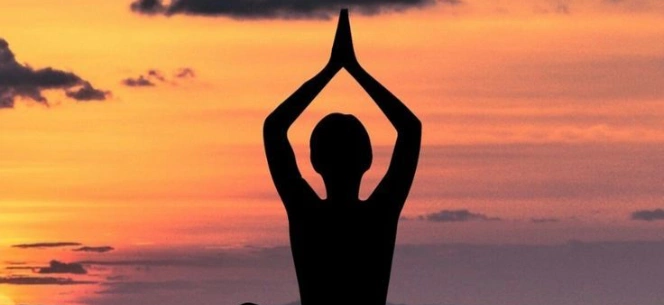
The future of work is about flexibility — where people adapt work to life, not life to work. It’s about technology that supports rather than distracts. It’s about empathetic leadership, not micromanagement. And it’s about treating mental health as a core part of professional success.

We now live in a world where the lines between home and office blur. That’s why we must learn to draw boundaries — shut the laptop, say no to overload, choose dinner with loved ones over one more Zoom call.
Balance doesn’t mean splitting hours evenly. It means living fully — not just being busy.
The future of work is human. And that means balance is not optional — it’s essential.
We all do it. We scroll through the feed and suddenly notice: someone’s done more, looks better, travels more, laughs louder. Someone is in Bali, someone just earned a new degree, someone bought an apartment. And then that familiar feeling creeps in: I’m behind, I’m not enough, I’m not where I should be. Even though just a moment ago, everything felt okay.
Comparison is a trap we fall into almost daily. Not because we’re weak or jealous, but because we’re human. We naturally look to others to understand ourselves. The problem is — what we see isn’t real life, it’s a highlight reel. We compare our full reality to someone else’s single moment. Our behind-the-scenes to their polished cover. And almost always — we come up short.
Social media has turned this feeling up to full volume. We see others’ achievements, but not their sleepless nights. We see smiles, but not the anxiety behind them. We see the result, not the path, the failures, the fear, the silence. And then we wonder: what’s wrong with me? When in truth, we’re just not seeing the full story.
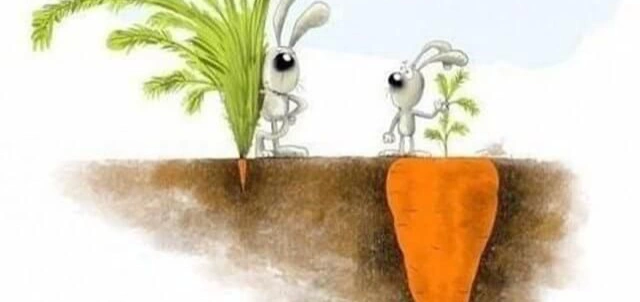
We need to remind ourselves: no one lives in a perfect upward spiral. Everyone has doubts. Everyone compares. Everyone has days where nothing works. But what you focus on shapes your world. Constant comparison drains you. Turning inward gives you something to stand on.
Inner grounding isn’t about thinking you’re better. It’s about knowing that you are you, and your path is your own. That you’re moving at your own pace. That you have the right to pause, to rest, to be quiet. That being "in progress" doesn’t mean you’re behind.

You don’t have to succeed on a schedule. You don’t have to be visibly happy to be worthy. You don’t need to look like anyone else to matter. You can simply live — fully, and not for the sake of comparison.
When you catch yourself measuring your life with someone else’s ruler, take it as a sign. Not to speed up, but to stop. To return to your body. Your rhythm. Your truth. Because joy doesn’t live where you’re “better than.” It lives where you stop comparing — and start feeling.
We live in a world where noise has become normal. Loud news feeds, constant notifications, background podcasts, music in our ears, endless messages, voice notes, video calls — we are always hearing something. Even when nothing is happening around us, our minds hum with thoughts, plans, memories, and worries. We've forgotten what it's like to simply be in silence.
Silence can be uncomfortable. It leaves no distractions. In silence, you hear what you usually avoid: yourself. Your thoughts, your emotions, your truth. That’s why we often run from it — filling every pause with sound, motion, or content. But that pause is exactly where healing begins.

Silence isn’t emptiness. It’s space — to breathe, to realign. In silence, thoughts settle, the body relaxes, the mind clears. Answers appear — ones the noise keeps buried. Silence doesn’t demand. It doesn’t sell, advise, compare, or compete. It simply exists. And in it, you’re allowed to exist, too.
In today’s world, silence feels like a luxury. We've forgotten that it's available. It doesn’t cost money. It doesn’t require a subscription. But it does require a decision. To turn off the phone. To pause. To go for a walk without headphones. To not scroll. To sit quietly. To just be with yourself.
You don’t have to be reachable 24/7. You don’t have to reply instantly. You don’t have to consume constantly. Sometimes the most important thing is to disconnect — just long enough to reconnect with yourself, with life, with others. Real connection doesn’t begin with messages — it begins with presence. And presence is born in silence.
We think recovery means vacation. But often, we don’t need a beach — we need peace inside our heads. And silence can become that space — the one where energy, focus, clarity, and meaning are slowly restored. Because in noise, we survive. But in silence — we live.

Silence doesn’t require hours. A few minutes is enough. Close your eyes. Take a breath. Listen not to music, but to stillness. If it feels uncomfortable at first — that’s okay. It just means you haven’t been alone with yourself for a while.
Let silence return to your life. Not as a rarity, but as a habit. In a world where everyone speaks — the real value belongs to those who can hear. And most often, it starts with hearing yourself.
We live in a world where noise has become the norm. News, notifications, comments, arguments, forecasts, comparisons, content — all at once, all the time. It’s hard to be alone with yourself, not because it’s boring — but because it’s unfamiliar. We've forgotten how to sit with silence. And even more — we fear it.
But silence isn’t emptiness. It’s not absence. It’s space. It’s in silence that clarity begins. In silence, you start to distinguish your own voice from all the others. You hear not just thoughts, but feelings. And that — goes deeper.
The world teaches us to be “on” 24/7. But no one taught us how to switch off. From connection, from pressure, from overload. We think silence is passive. That if you’re not speaking, you have nothing to say. That if you don’t respond immediately, you’re “gone.” But in truth — silence is restoration.

Silence is not withdrawal. It’s return. To yourself. To the present moment. To the understanding that you don’t have to rush, prove, or participate in everything. You’re not required to react to every headline. Not required to be a constant presence. You are allowed to pause.
Sometimes silence is a form of care. When you’re too tired to speak, but still want to be present. To simply be. To be real. Without filters. There’s deep relief in it: you don’t have to be inspiring, productive, impressive. You just exist. And that — is enough.
When you allow silence, subtle things begin to surface. You start noticing what used to fly past. A glance. A beam of light. A breath. A taste. Life gains depth. Slows down. Becomes real again. That’s the point: not to make noise about who you are — but to feel who you are.

We fear silence because there’s nothing to distract us. It shows us our raw self. Tired. Unsure. Lonely. But through that, a real meeting happens. No masks. No distractions. No noise. And you realize — you’re alive. Not perfect. Not polished. But present. And listening.
Silence isn’t empty because the world disappears.It’s full — because in that quiet, you return to yourself.And that is the most important thing you can ever hear.
We often say we’re “just tired.”But sometimes, it’s more than that.It’s when rest doesn’t help.When even small tasks feel overwhelming.When joy feels distant and motivation disappears.It’s not laziness. It’s burnout.
Burnout is quiet. It creeps in slowly, over weeks and months. You keep going, showing up, replying, smiling — until one day, you feel… nothing. Numb. Drained. Detached from the things and people you used to love.
We live in a culture that glorifies constant productivity. “Always be improving.” “Push through.” “No excuses.”But we’re not machines. We are not meant to function endlessly without pause.

Burnout isn’t a sign of weakness — it’s a sign that something important is being ignored. A need for rest. For boundaries. For reconnection. For meaning. For a slower, gentler pace.
We ignore the early signs: irritability, brain fog, exhaustion, lack of joy. We tell ourselves, “Just one more deadline.”“I’ll rest after this.”“Other people are doing more.”
But burnout doesn't go away on its own. It demands attention. It forces you to stop — even when you don’t think you can. And often, the only way out is through: by being honest with yourself, even when that means facing discomfort.
You are allowed to rest. You are allowed to unplug. You are allowed to not have it all together.

Productivity should not cost you your health. Your peace. Your joy.Doing less doesn't make you less. You are not your output.
You are still worthy — even when you rest.Even when you pause.Even when you're not at your best.
The world might keep spinning, but you’re allowed to slow down. To heal. To rediscover what matters.You don’t need to earn your rest. You already deserve it. Simply because you’re human.